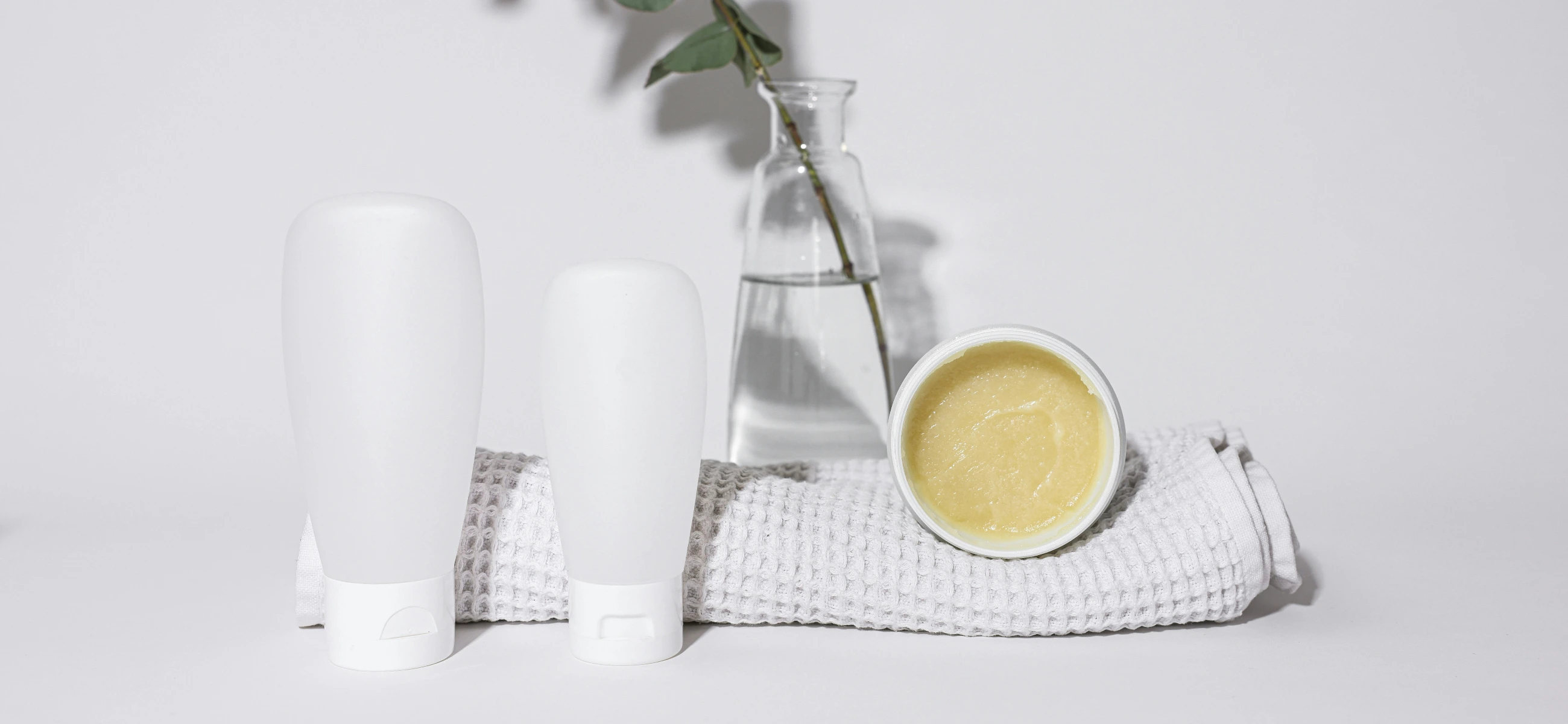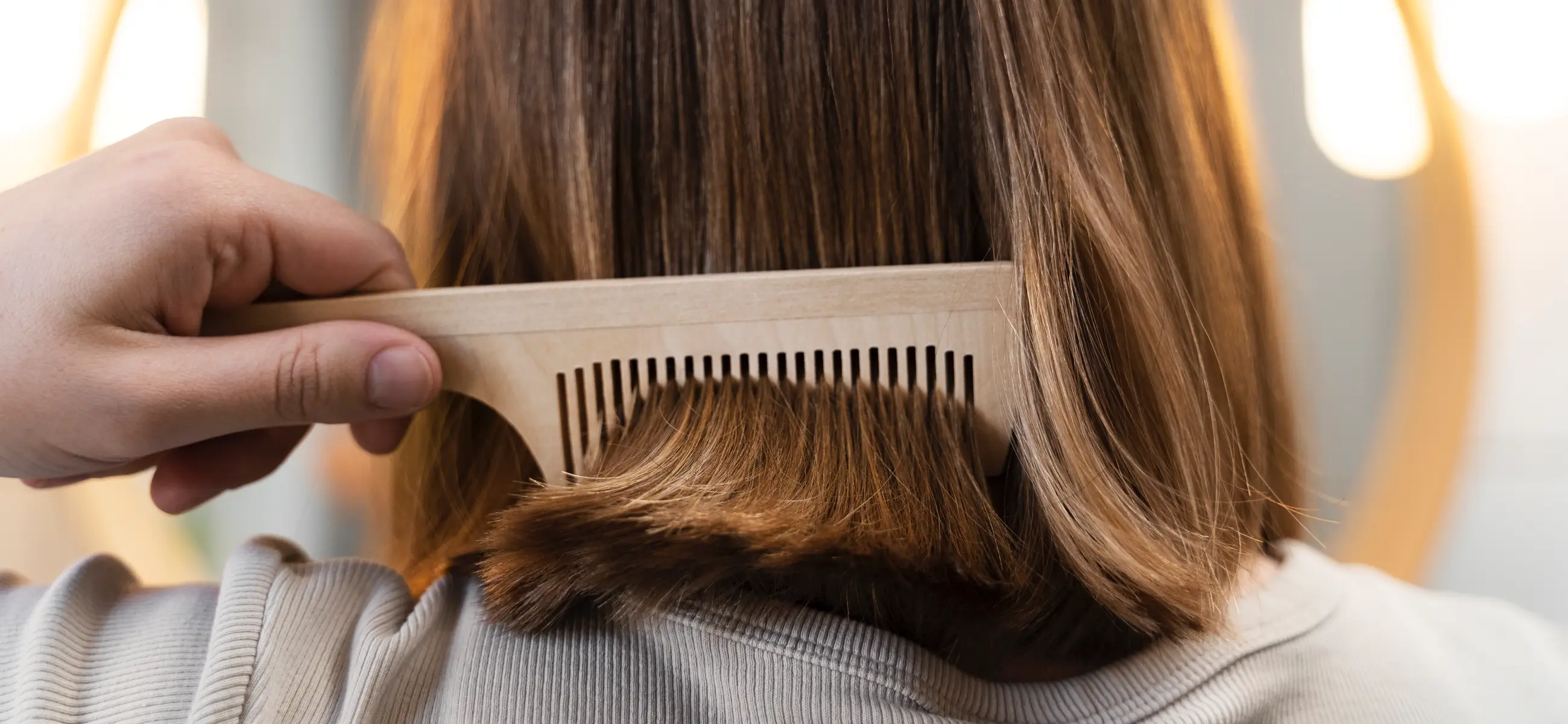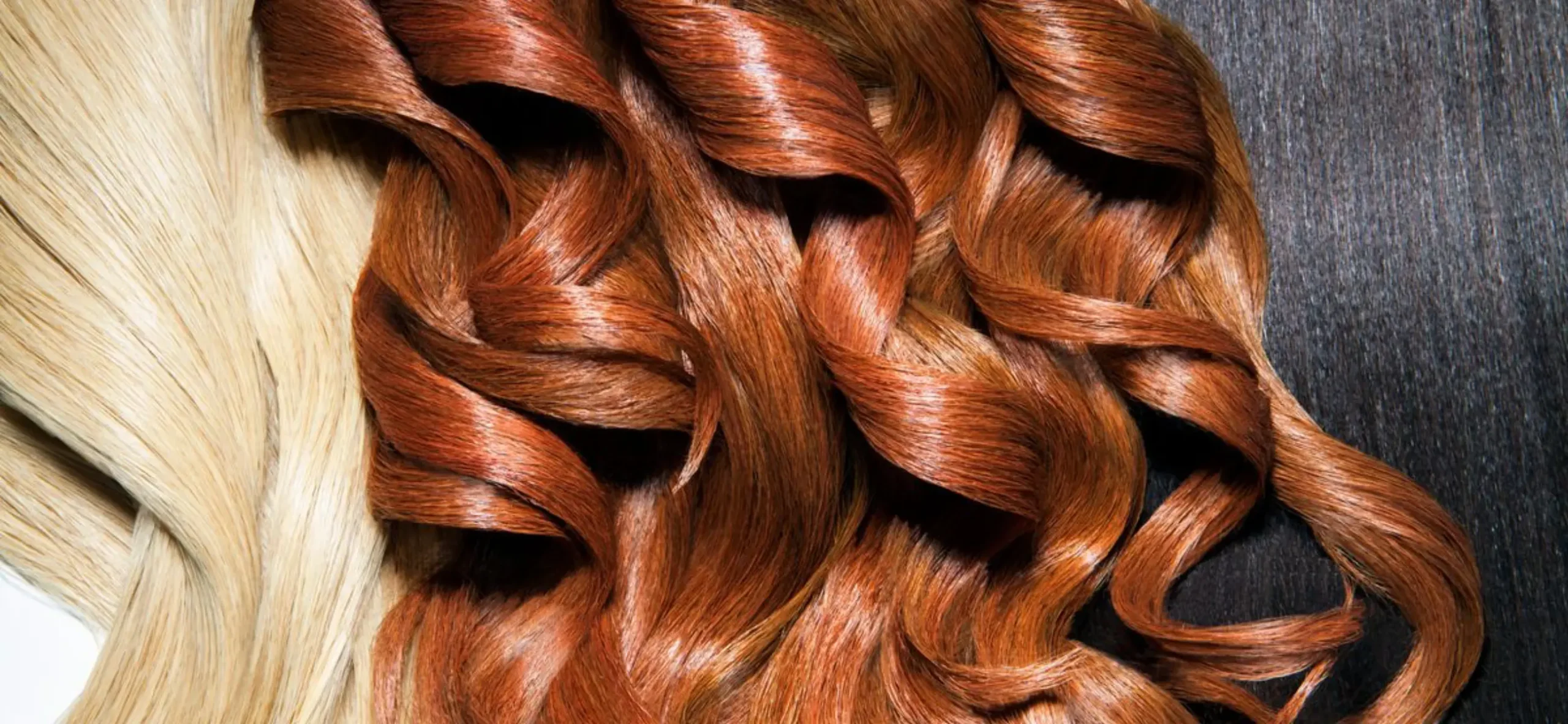Dry, dehydrated hair is something that most of us want to avoid. However, our hair can dry out because of numerous factors, including the products that we use and the environment around us. Therefore, taking simple steps to use the right tools and products can make a big difference to the moisture content of our hair.
Equally, deep conditioning and homemade hair masks can also work really well, particularly if you use them regularly. So, join us as we explore how to moisturize dry hair and discover some straightforward things you can do to improve your hair’s moisture content.
First: What causes dry hair and scalp?

Numerous factors can cause your hair and scalp to dry out. The issue is compounded when the sebaceous glands in your scalp don’t release sufficient sebum to keep your hair naturally moist and hydrated. Sebum is crucial, as it lubricates your hair follicles and prevents them from feeling dry.
One of the most common reasons why your hair feels dry and straw-like is that you’re using products that affect its moisture content. For instance, if you consistently rely on chemical-based shampoos and conditioners, you’re more likely to suffer from dry and brittle hair.
People who regularly use heat-based styling tools like curling wands and hair straighteners are also more likely to have dry and brittle hair, so restricting the amount you use such products will help significantly.
Another issue is the environment, especially if you spend much time outdoors. Dirty hair can feel particularly dry, while hair that is constantly exposed to the sun’s UV rays is much more likely to be dehydrated.
If any of these issues resonate with you, you will need to take the necessary steps to rehydrate your hair to avoid long-term damage, as we explain below.
How to add moisture to dry hair?
So, how do you add moisture to dry hair? The good news is that there are several simple ways to rehydrate your hair, and if you make the changes with an eye on the long term, they should result in much healthier and happier hair going forward. Here are some changes to make to your hair care routine that explain how to put moisture into dry hair:
Switch to a moisturizing shampoo and conditioner
With so many brands and options out there, choosing the best shampoo and conditioner can be challenging. But if you have dry hair, it’s so important that you choose products that are naturally nourishing without causing any further damage to your fragile hair.
Therefore, you should keep clear of hair products that contain sulfates and alcohol, as these chemicals can cause your hair to dry out further. Instead, look for natural products with ingredients like jojoba oil, argan oil, or avocado oil, as these can all add much-needed moisture to your hair and scalp.
Limit heat-based styling
For many people, heat styling is the direct cause of dry and brittle hair. If you experience dry or brittle ends and you regularly use a curling wand or straighteners, you should stop using them for a while. When you do use them, you should always apply a heat protectant to your hair, which serves as an essential barrier that helps to lock in some of your hair’s moisture content.
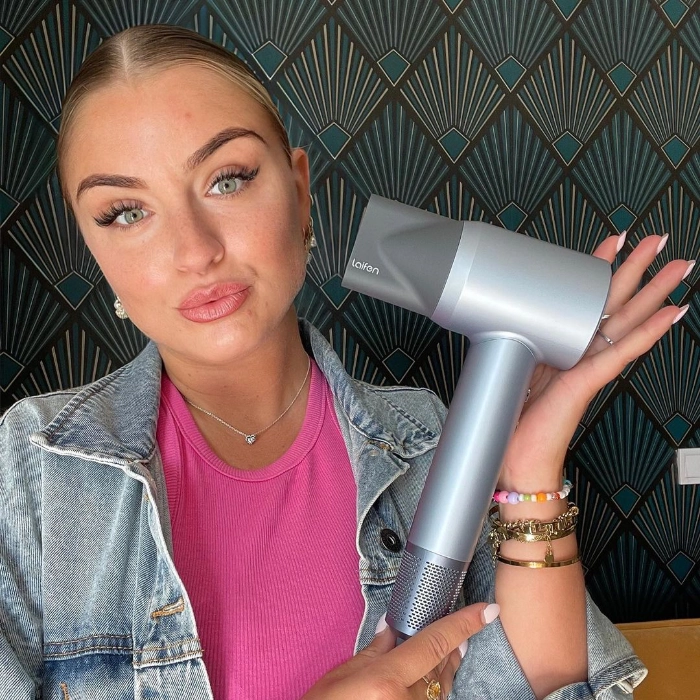
As for your hair dryer, switching to the Laifen Swift is a great way to protect your hair. The ionic technology helps to dry your hair quickly and efficiently without requiring the hottest setting to be successful. As such, you can dry your hair on low or medium heat with impressive results, which will prevent your hair from becoming dehydrated.
Treat yourself to frequent hair masks
Wearing a nourishing hair mask is one of the best ways to add some much-needed moisture to your hair. If you’re wondering how to moisturize dry hair with home remedies, putting together a hair mask with ingredients from your kitchen is a simple step.
One of the best homemade masks is aloe vera plus coconut oil, which has significant moisturizing benefits. This combination is also rich in enzymes, fatty acids, and vitamins, which help with the growth and health of your hair.
You don’t need to wear a hair mask every day, but if your hair is particularly dehydrated, we recommend treating yourself to a mask two or three times per week to begin with. Then, you can switch to a weekly hair mask going forward, as it’s such a simple way to supplement your haircare routine while locking in your hair’s natural oils.
Try deep conditioning
If you’re wondering how to moisturize dry hair without washing it, deep conditioning is a good alternative. DIY deep conditioners can hydrate your scalp and significantly reduce moisture wash, making them a brilliant DIY remedy.
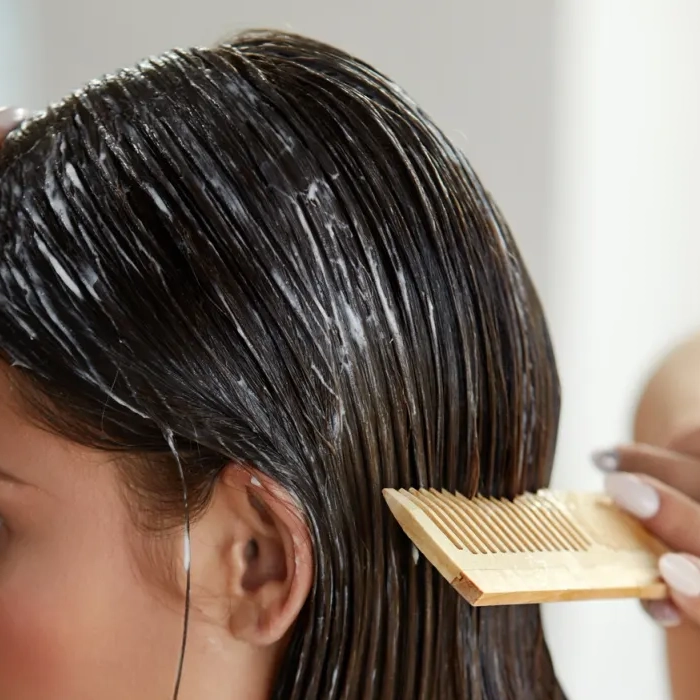
Most deep conditioners contain emollients, which soften your hair and create a protective film around the strands. They may also contain humectants, which bind to water to hydrate the hair. When applied correctly and consistently, deep conditioners can decrease frizz and increase the smoothness of your hair.
There are many deep conditioners out there to try, but you can also make your own at home. For instance, a combination of olive oil, egg, and avocado can yield brilliant results. Mix these ingredients together in a bowl and apply to your hair, leaving it for thirty minutes. You can then rinse it out with cool water.
Consider hot oil treatment
People with some hair types may benefit from hot oil treatments. Research from 2022 found that the likes of coconut oil, almond oil, castor oil, and argan oil can all be used as part of successful hot oil treatments, as they have been used for generations in traditional medicine.
To perform hot oil treatment, you need to warm the oil up so it exists in its liquid form, before gently massaging it into your hair. You can leave it in for at least thirty minutes, but you may also want to leave it in overnight if your hair is particularly dry.
You will need to thoroughly wash and dry your hair after the hot oil treatment to remove all residue.
Wash your hair less frequently
When it comes to how to keep dry hair moisturized, changing how often you wash your hair can make a huge difference. Many of us wash our hair too frequently out of habit, which can strip some of the natural sebum from the follicles, causing your hair to dehydrate.
How often you should wash your curly hair? What about other hair types like traight hair or wavy hair? Though everyone is different, we recommend washing your hair no more than two or three times per week. Washing your hair every day is a big no-no, as the constant application of the product will strip your hair of much of its natural sebum.
If you work outside or generate lots of sweat on a daily basis, you will probably have to wash your hair more frequently than other people, perhaps every other day.
Washing your hair less frequently and using natural shampoo and conditioner rather than chemical-based products will help nourish your hair and prevent it from drying out in the future.
How to moisturize dry hair overnight?
If you have exceedingly dry hair, you can moisturize it overnight with deep conditioning or by applying a hair mask before you go to bed. Both of these methods can work, but you will need to wrap your hair to prevent the products from messing up your pillow!
You can use a turban to wrap your hair, or a microfiber towel or t-shirt can work just as well. If you decide to wrap your hair overnight, you will need to thoroughly wash your hair with shampoo and conditioner in the morning to remove any residue. Failing to do this can cause your hair to look excessively oily or greasy, particularly if your hair mask contains argan, coconut, or avocado oil.
The bottom line: How to moisturize dry natural hair
Prevention is the best cure for dry hair, so avoiding products and tools that dry your hair out is an important first step to take. Thereafter, treating your scalp with a hair mask or a deep conditioning treatment can work wonders, while hot oil can also be a viable option for some people, as recent research has proven.
Don’t forget that adding moisture to your hair should be a long-term goal, so implement these changes in the short term and take simple steps that will help to rehydrate and renourish your hair in the long run.


